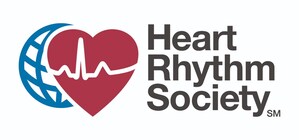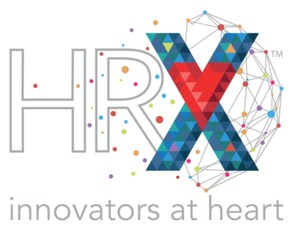New Study Shows Delayed Use Of Blood Thinners For Atrial Fibrillation Increases Risk Of Dementia
Presented at Heart Rhythm 2017, first-of-its-kind, large scale study includes more than 76,000 patients
CHICAGO, May 12, 2017 /PRNewswire/ -- A new study found that dementia rates increase with delays in starting anticoagulation treatment for atrial fibrillation (AF). The large study included more than 76,230 AF patients with no prior history of dementia that were treated with an antiplatelet or warfarin. The results were presented today at Heart Rhythm 2017, the Heart Rhythm Society's 38th Annual Scientific Sessions, and show that warfarin, in particular, can increase the risk of dementia long-term.
AF, the most common heart arrhythmia, affects more than 2.7 million American adults and has been known to increase a person's risk of stroke and death. Anticoagulants, or blood thinners, like antiplatelets and warfarin are powerful stroke prevention interventions and are now being prescribed to millions worldwide[1]. However, there is often a delay in starting anticoagulants after the initial AF diagnosis due to a variety of reasons, including low risk of stroke, exploration of other treatment options like aspirin, older age, multiple comorbidities, and more.
The study included 76,230 AF patients who had no prior history of dementia or prior use of an anticoagulation treatment. 26,189 patients were ultimately treated with an antiplatelet (n=21,781) or warfarin anticoagulation (n=4,408). Time from AF diagnosis to the use of an antiplatelet agent or anticoagulation was studied at immediate start (less than 30 days from diagnosis), and delayed (after one year). The authors note that CHADS2 Vasc score can be used to identify those at highest risk of cognitive decline with a delay in therapy.
The risk of dementia with a delay in low risk CHADS2 Vasc patients was 30 percent but increased significantly to 136 percent in high risk CHADS2 Vasc patients. The authors also found that when the time period of delays were analyzed as a spectrum from less than 30 days, 31 days to one year, one to three years and longer than three years, there was a linear risk of dementia risk with the delays in warfarin initiation.
"Our results reinforce the importance of starting anticoagulation treatment as early as possible after being diagnosed with atrial fibrillation. We saw for the first time that waiting even just 30 days to initiate anticoagulation treatment can increase a patient's long-term risk of developing dementia," said T. Jared Bunch, MD, Director of Heart Rhythm Research at Intermountain Medical Center Heart Institute and Medical Director for Heart Rhythm Services for the Intermountain Healthcare system. "We want to ensure we're doing everything possible to limit the risk of brain injury for our patients and our study not only shows the importance of early therapy but also shows the very limited role, if any, of aspirin for stroke prevention. In this study, the benefit was derived from using warfarin and we hope that newer anticoagulants that perform better than warfarin and are easier to start and use will further improve dementia risk."
The authors of the study call for additional studies to fully understand how the risk of dementia increases over a longer period of time. They have recently launched a prospective study using dabigatran versus warfarin that will closely study cognitive changes over a two-year period. The growing use of these newer treatments like direct oral anticoagulants such as dabigatran, apixaban and rivaroxaban, are providing patients with more effective options and should also be studied to determine the risk of dementia.
Sessions details:
"Anticoagulation for Atrial Fibrillation: Current Strategies and Device-Based Approaches: Dementia Rates Increase With Delays In Initiation of Anticoagulation Treatment for Atrial Fibrillation" [May 12, 2017, 1:30 p.m. – 3:00 p.m., Room 184C]
Heart Rhythm 2017 is the most comprehensive educational program for heart rhythm professionals, featuring more than 250 educational sessions and more than 130 exhibitors showcasing innovative products and services. The Heart Rhythm Society's Annual Scientific Sessions have become the must-attend event of the year, allowing the exchange of new vital ideas and information among colleagues from every corner of the globe. For more information, visit www.hrssessions.org.
About the Heart Rhythm Society
The Heart Rhythm Society is the international leader in science, education and advocacy for cardiac arrhythmia professionals and patients, and the primary information resource on heart rhythm disorders. Its mission is to improve the care of patients by promoting research, education and optimal health care policies and standards. Incorporated in 1979 and based in Washington, DC, it has a membership of more than 5,900 heart rhythm professionals in more than 70 countries around the world. For more information, visit www.HRSonline.org.
[1] "Ensuring medication adherence with direct oral anticoagulant drugs. Lessons from adherence with vitamin K antagonists (VKAs)," A. Di Minno, G. Spadarella, T. Antonella, G. Di Minno, 2014, Thrombosis Research, 133(5). DOI: 10.1016/j.thromres.2014.01.016
Contact:
Allison Kassel: (904) 728-2145
SOURCE Heart Rhythm Society
Related Links
WANT YOUR COMPANY'S NEWS FEATURED ON PRNEWSWIRE.COM?
Newsrooms &
Influencers
Digital Media
Outlets
Journalists
Opted In





Share this article